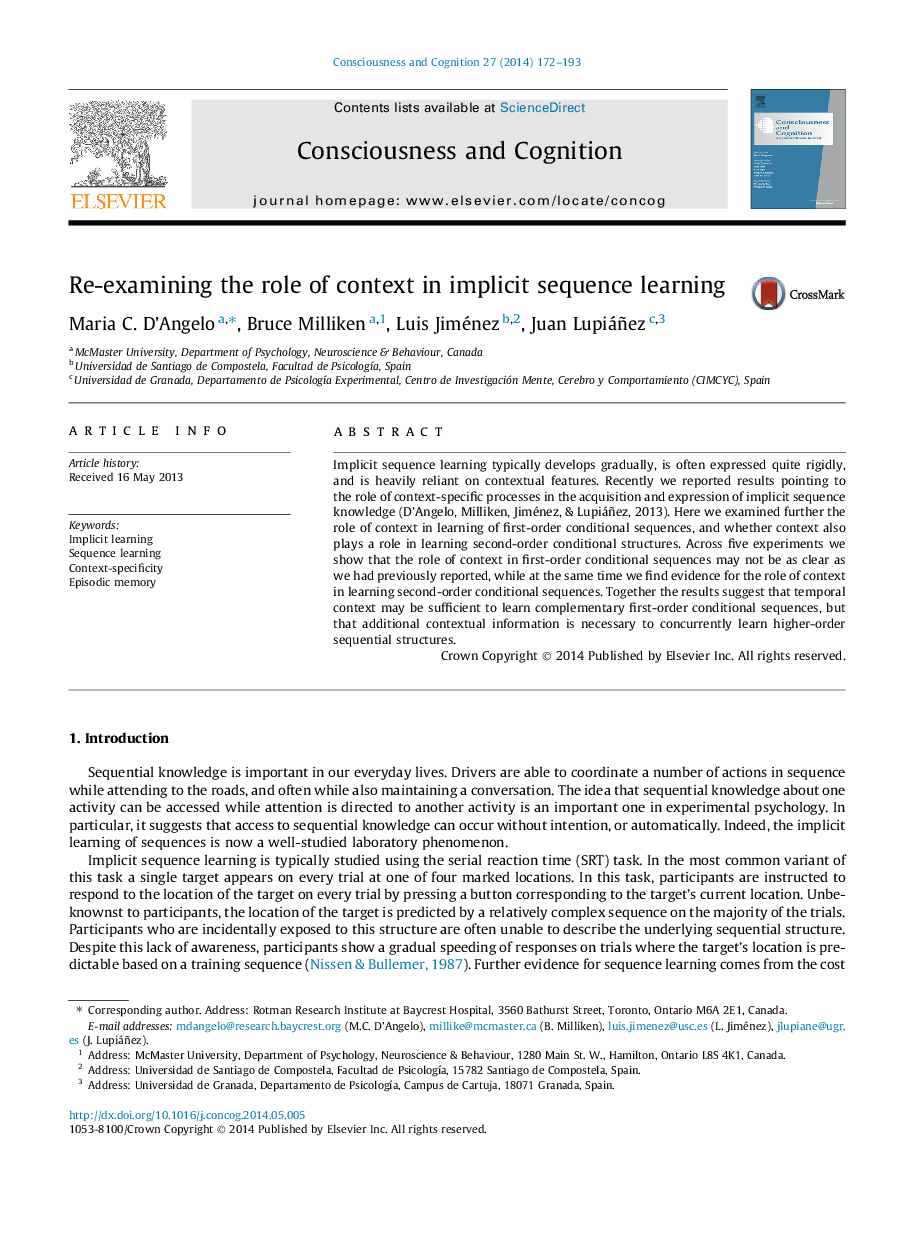| Article ID | Journal | Published Year | Pages | File Type |
|---|---|---|---|---|
| 7289995 | Consciousness and Cognition | 2014 | 22 Pages |
Abstract
Implicit sequence learning typically develops gradually, is often expressed quite rigidly, and is heavily reliant on contextual features. Recently we reported results pointing to the role of context-specific processes in the acquisition and expression of implicit sequence knowledge (D'Angelo, Milliken, Jiménez, & Lupiáñez, 2013). Here we examined further the role of context in learning of first-order conditional sequences, and whether context also plays a role in learning second-order conditional structures. Across five experiments we show that the role of context in first-order conditional sequences may not be as clear as we had previously reported, while at the same time we find evidence for the role of context in learning second-order conditional sequences. Together the results suggest that temporal context may be sufficient to learn complementary first-order conditional sequences, but that additional contextual information is necessary to concurrently learn higher-order sequential structures.
Related Topics
Life Sciences
Neuroscience
Cognitive Neuroscience
Authors
Maria C. D'Angelo, Bruce Milliken, Luis Jiménez, Juan Lupiáñez,
